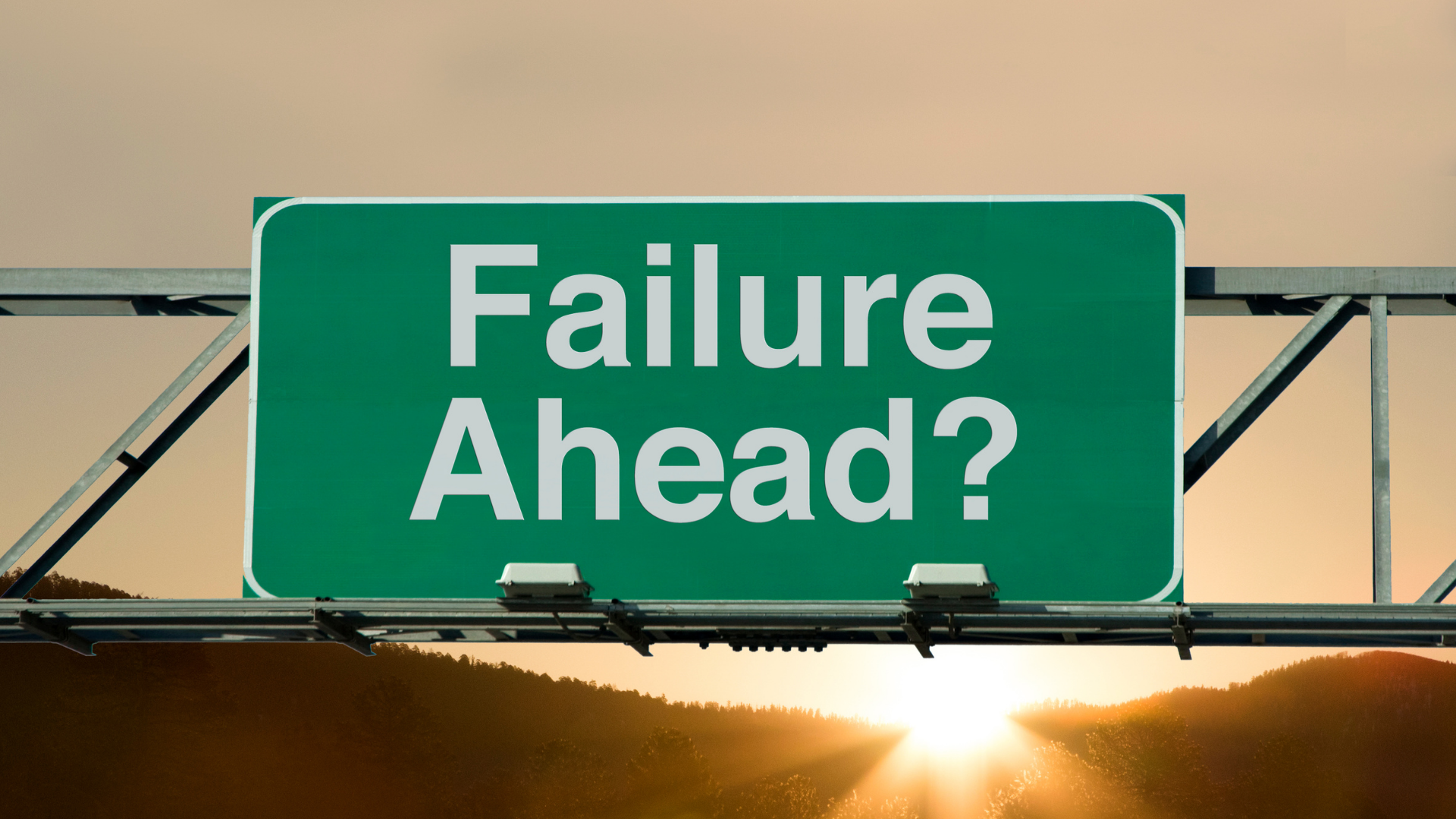FAILURE.
It’s an interesting word on which to ruminate at any given time, but especially at the start of a New Year. After all, the new year is a time for rebirth, new beginnings, and New Year’s Resolutions.
I’ve never been a fan of resolutions, to be honest. So often, resolutions feel huge and weighty, overwhelming, unwieldy, and frankly, unattainable. They are often vague (“Exercise more!” and “Save money!”), unfocused or without a clear plan forward (“I want to lose weight!”), extreme (“I’m going vegan!”), or rooted in the negative rather than the positive (“I’m going to become a whole new me!”). Sometimes, they focus on imaginary imperfections that exist only in our minds, and more often than not, they come without an action plan and milestones along the way to measure and achieve success. Most, unfortunately, the resolution is almost never singular; they all too often come in the plural. We make them in lists, bullet points that stretch down the page (or in our minds) and set us up for failure. Failure that others can bank on. Literally.
For example, take a look at gym memberships. January accounts for 12% of new gym memberships, yet 80% don’t make it past the five-month mark (despite likely being locked into long contracts or in often-forgotten auto-billing cycles). These numbers don’t even account for the large majority who sign up and only attend a few times, rarely regularly, or not at all.
Even a single resolution, made in the heat of the moment, during the holidays when we are more likely to have indulged (in food and drink, in free time, in spending), when we are conditioned to believe we should be committing to a “New You!” may fall prey to failure without a plan to put the journey toward that goal into motion, to break it down into doable pieces. Without a clear plan, broken down into attainable steps with mile-markers along the way to check in and take measure, it’s just a large, looming elephant in the distant horizon, out of reach and seemingly mocking us. And as Desmond Tutu once wisely said: “there is only one way to eat an elephant: a bite at a time.”
I Fail All the Time
You probably do, too. I’ve had to teach myself to believe that it’s more about how you proceed after the failure than about yearning for success or trying to avoid failure.
Because if you’re trying, if you’re stretching, if you have goals, failure is inevitable.
Here’s a list of things I’ve failed at just this morning (it’s currently only 9:17 AM):
- 30 minutes of focused reading (I checked my phone repeatedly and had to start my 30-minute timer over at least 3 times),
- holding a relatively simple yoga pose (I fell over twice)
- avoiding negative self-talk or unnecessary self-criticism (see #2)
- not checking my email/social media until I’ve completed my 30-minutes of reading and one yoga practice session (see #1)
Those may seem minuscule in the grand scheme of things, but these are all from my list of what some people may call “resolutions” but which I insist on calling goals, mainly because my goals are small, measurable, and (now) come with a plan of how to reach them. But if I’ve failed at these simple, innocuous things, all before I’ve even finished my morning coffee, what else might I fail at today, tomorrow, this year?
The way I think about failure, though (through a lot of training myself to do so), is that these types of failures aren’t really failing: they’re simply the result of a momentary lack of focus. Failure will only occur if I give up altogether. (Which is also possible, let’s be real about it — but more about that below).
(SIDE NOTE: I “failed” to get this post written in as timely a fashion as I had planned; life simply got in the way: emails, clients, and other work took precedence. It is now one week later, and I am pressing PUBLISH on this post. But at least I’m getting it done!)
What About “Real” Failures?
You may be thinking: failing to hold a yoga posture or focus on reading is not really failure — what about “real” failures? Failures in business, in relationships, in leadership goals, and in personal goals.
In so many of those milestones, I would posit the perception of failure is dependent largely on what you’re using as a measuring stick to evaluate your level of success or failure. The rise of the popularity of social media greatly contributes to skewing the barometers we use to measure our successes by allowing us to view our shortcomings and stumbling blocks, as well as our accomplishments and victories, through the distorted lens of others’ social posts fueling unprecedented (and unhealthy) levels of “keeping up with the Joneses” mentality.
I decided a long time ago that only I would determine my success in my business; my barometer for measuring my level of success needed to be set by milestones that I decide upon, not through comparison of myself to others — especially not through comparison of myself to someone else’s highly curated version of their life and business as witnessed through a Facebook feed or Instagram grid. It’s not always easy: it requires a conscious reset of mindset or simply closing the laptop or swiping away the app, revisiting my gratitude, and remembering that what we see on a social media profile only tells a fraction of the story.
I have my own set of criteria for determining if I have been successful, which doesn’t always include making more money (that may be one of the criteria, but it certainly isn’t the only piece of the puzzle). Just like in a multiple-offer situation, the highest dollar amount is great, but it’s not always the most important thing.
- In 2021, I grossed slightly less in sales than I did in 2020: FAILURE
- However, thanks to a pandemic lockdown revamping my business and expenses, I actually kept a higher percentage of my GCI: SUCCESS
- The market was more difficult, and we worked exponentially harder for each accepted buyer’s contract than we ever have before, meaning I worked harder (and technically, my profit margin per client went down): FAILURE
- However, I allowed myself to take more days off in 2021 than I ever had before, and I made more time for the things that bring me joy and contribute to my overall self-care and well-being: SUCCESS
- I added an investment property to my portfolio: SUCCESS
- My husband and I took a one-week vacation to Greece and the United Kingdom: SUCCESS
I choose to view my year in 2021 as a success because I view it in total through a lens that takes in all of the information rather than simply how much money I made.
The Opposite of Failure Is Not Success
When you Google “What is the opposite of failure?” the first half-dozen hits are from thesaurus.com and similar, literally spelling out the opposite of failure in terms of antonyms. Of course, you can guess some options: perfection, advantage, profitability, prosperity, and success.
 I argue, no. The opposite of failure is not success.
I argue, no. The opposite of failure is not success.
A more appropriate opposite might be stick-to-it-iveness, refusing to give up, and finding another path.
In a word: the opposite of failure is resilience.
There’s a reason for the old saying, “If at first, you don’t succeed, try, try, try again.” (I had to Google who said that: it’s William Edward Hickson; I’ve never heard of him, either, but he did coin that great advice for us!) A more updated version may be, “If, at first, you don’t succeed, call it version 1.0.” In other words: rework it, revamp it, plan better, and break it down into smaller bites. Try again.
Last year, I committed to a 30-day yoga challenge, and I made it 27 days. Not only did I fail, I then fell into the all-too-familiar trap of beating myself up for the failure and then continuing only sporadically after that. I’ve committed again this year, but I’ve learned from last year’s failure: I’ve put the times for each day’s practice into my calendar. There it is: blocked into my calendar each day, and if I need to schedule something in its place, then it needs to be moved to another time slot on the calendar. A few weeks ago week, in a hotel room, I “failed” to complete Day 4 of the 30-day challenge because I was slipping and sliding trying to practice yoga without a yoga mat (note to self: a hotel towel is not a good substitute). Still, instead of beating myself up, I committed to completing Day 4 and Day 5 when I was back home the next day (and immediately ordered a foldable travel yoga mat to bring along from now on). I beat myself up and moved away from the goal for the time being, but I didn’t give up the goal; I only put it on the back burner.
If You Quit, Have You Failed?
I’ve experienced a lack of success in many endeavors, as you likely have, and subsequently stopped trying. Is that failure?
I say: only maybe.
Here’s where I get into semantics, perhaps only to make myself feel better about it, but go with me for a minute.
If I give up, I fail. Giving up, to me, is giving in. Giving up doesn’t feel intentional; it feels forced. I’ve been beaten; my efforts have been useless; I’ve admitted defeat.
If I quit, however, it feels more intentional. It’s okay to quit if you’ve tried and realized that the path is wrong or that the end game is not what you want.
Let’s examine quitting versus giving up: the kid who quits a sport because it no longer brings her joy versus the kid who gives up because “everyone is better than me.” The student who quits a major because, after some exploration, he realizes it’s not what he thought it would be versus the student who gives up after one failed test or class. The real estate agent who quits a marketing initiative after several months of diligence and reviewing the return on investment, finding it not what it was anticipated to be, versus the one who sends one Just Listed postcard and gives up on farming as a lead generation tactic.
Am I simply parsing words, arguing the subtle differences in synonyms, and wordsmithing to make myself feel better? Maybe. But it makes sense to me. Quitting comes with analysis and a review of the end-game and the cost to get there; it involves putting in the work and assessing the return on investment and the opportunity cost. Giving up involves none of those things.
RECOMMENDED READING, ETC.
- How To Fail: Everything I’ve Ever Learned From Things Going Wrong, by Elizabeth Day
- Failosophy: A Handbook For When Things Go Wrong, by Elizabeth Day
- How To Fail with Elizabeth Day (podcast)
- Why Your Mindset Around Failure Can Make or Break Your Success, Inc.
- Failure Isn’t Half As Bad As Not Learning From It, Inc.
- Why the Way Business Leaders Talk About Failure Is All Wrong, Forbes



